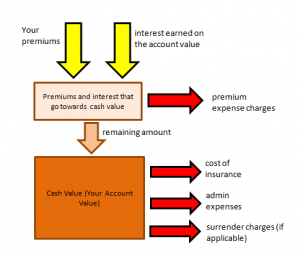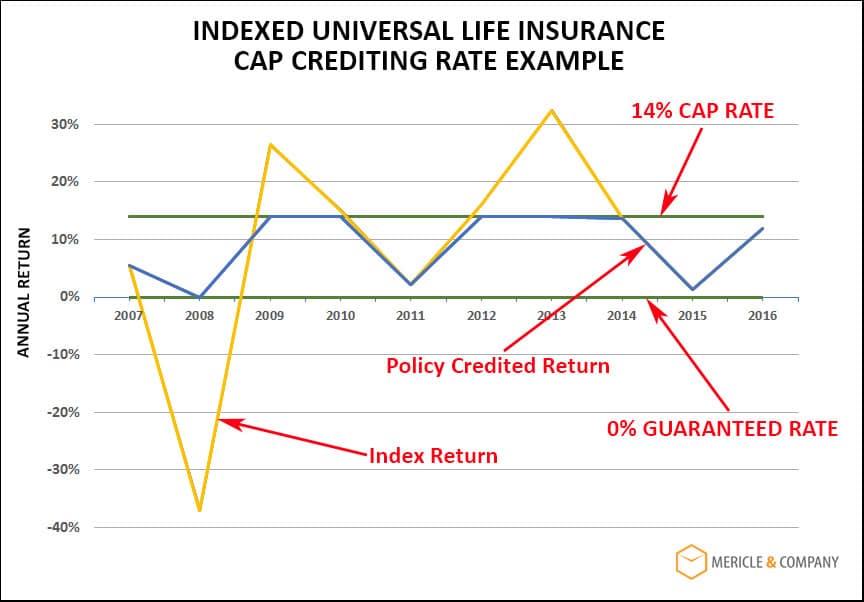All Categories
Featured
Table of Contents
1), typically in an attempt to beat their classification averages. This is a straw male debate, and one IUL individuals love to make. Do they contrast the IUL to something like the Vanguard Total Amount Stock Market Fund Admiral Show to no tons, an expenditure ratio (EMERGENCY ROOM) of 5 basis factors, a turn over proportion of 4.3%, and an outstanding tax-efficient record of distributions? No, they contrast it to some horrible proactively taken care of fund with an 8% tons, a 2% ER, an 80% turnover proportion, and an awful document of temporary resources gain circulations.
Mutual funds often make yearly taxable circulations to fund owners, even when the worth of their fund has dropped in worth. Shared funds not only call for revenue coverage (and the resulting yearly taxation) when the mutual fund is rising in worth, however can also enforce income tax obligations in a year when the fund has actually gone down in worth.
That's not exactly how shared funds function. You can tax-manage the fund, harvesting losses and gains in order to decrease taxable distributions to the capitalists, but that isn't in some way going to alter the reported return of the fund. Just Bernie Madoff types can do that. IULs prevent myriad tax catches. The possession of common funds might call for the common fund owner to pay estimated taxes.

IULs are simple to place to ensure that, at the proprietor's fatality, the recipient is exempt to either earnings or inheritance tax. The same tax obligation decrease methods do not work virtually too with common funds. There are countless, commonly pricey, tax obligation traps related to the timed trading of common fund shares, traps that do not relate to indexed life insurance policy.
Chances aren't really high that you're going to undergo the AMT because of your common fund distributions if you aren't without them. The remainder of this one is half-truths at finest. While it is true that there is no income tax obligation due to your successors when they acquire the proceeds of your IUL plan, it is likewise true that there is no earnings tax obligation due to your beneficiaries when they inherit a common fund in a taxable account from you.
Indexed Universal Life Insurance Good Or Bad
There are much better means to stay clear of estate tax issues than buying investments with reduced returns. Mutual funds might trigger revenue taxes of Social Safety benefits.

The development within the IUL is tax-deferred and might be taken as free of tax earnings using financings. The policy proprietor (vs. the common fund supervisor) is in control of his or her reportable earnings, therefore enabling them to decrease and even remove the tax of their Social Protection advantages. This is fantastic.
Right here's another very little issue. It's true if you buy a shared fund for say $10 per share prior to the distribution day, and it disperses a $0.50 distribution, you are then going to owe tax obligations (possibly 7-10 cents per share) although that you have not yet had any kind of gains.
In the end, it's actually concerning the after-tax return, not just how much you pay in tax obligations. You are mosting likely to pay more in tax obligations by utilizing a taxed account than if you get life insurance policy. However you're likewise probably mosting likely to have more cash after paying those taxes. The record-keeping requirements for having mutual funds are considerably a lot more complicated.
With an IUL, one's documents are maintained by the insurance provider, copies of yearly statements are mailed to the owner, and distributions (if any type of) are completed and reported at year end. This one is likewise kind of silly. Naturally you need to keep your tax records in situation of an audit.
Equity Indexed Life Insurance Definition
All you need to do is push the paper into your tax folder when it turns up in the mail. Rarely a reason to purchase life insurance policy. It's like this individual has actually never ever bought a taxed account or something. Shared funds are generally part of a decedent's probated estate.
On top of that, they undergo the delays and expenses of probate. The profits of the IUL policy, on the other hand, is constantly a non-probate circulation that passes beyond probate straight to one's named beneficiaries, and is as a result exempt to one's posthumous lenders, undesirable public disclosure, or comparable hold-ups and costs.
We covered this under # 7, but just to evaluate, if you have a taxed shared fund account, you should place it in a revocable trust fund (or perhaps less complicated, make use of the Transfer on Fatality classification) to avoid probate. Medicaid incompetency and lifetime income. An IUL can provide their proprietors with a stream of revenue for their entire lifetime, no matter how much time they live.

This is helpful when arranging one's affairs, and transforming properties to income prior to an assisted living home arrest. Mutual funds can not be converted in a comparable way, and are generally taken into consideration countable Medicaid possessions. This is one more foolish one supporting that inadequate people (you know, the ones who need Medicaid, a government program for the bad, to spend for their assisted living home) must make use of IUL rather of common funds.
Iul Tax Free Income
And life insurance policy looks dreadful when contrasted relatively versus a retirement account. Second, individuals that have money to buy IUL over and past their retired life accounts are going to have to be dreadful at taking care of money in order to ever before get approved for Medicaid to pay for their assisted living home costs.
Persistent and terminal health problem cyclist. All policies will permit an owner's easy accessibility to cash from their plan, typically forgoing any kind of surrender fines when such individuals experience a significant disease, need at-home treatment, or become restricted to an assisted living home. Shared funds do not supply a similar waiver when contingent deferred sales charges still put on a common fund account whose proprietor requires to offer some shares to money the prices of such a remain.
Iul Life Insurance Calculator
You obtain to pay even more for that benefit (biker) with an insurance policy. Indexed global life insurance policy supplies fatality advantages to the recipients of the IUL proprietors, and neither the owner neither the recipient can ever before shed cash due to a down market.
Currently, ask yourself, do you really require or want a survivor benefit? I certainly don't require one after I reach monetary independence. Do I desire one? I expect if it were affordable sufficient. Of training course, it isn't cheap. Usually, a purchaser of life insurance coverage spends for real price of the life insurance policy benefit, plus the prices of the policy, plus the revenues of the insurance provider.
Is An Iul A Good Investment
I'm not completely certain why Mr. Morais threw in the entire "you can not shed money" once more below as it was covered rather well in # 1. He just intended to repeat the ideal marketing point for these things I intend. Once more, you don't lose small dollars, however you can shed actual bucks, along with face significant chance price as a result of reduced returns.

An indexed global life insurance policy plan owner may exchange their plan for a totally various policy without triggering revenue taxes. A common fund owner can not move funds from one shared fund firm to one more without selling his shares at the former (thus setting off a taxable occasion), and buying brand-new shares at the latter, usually subject to sales costs at both.
While it holds true that you can exchange one insurance coverage for an additional, the factor that individuals do this is that the very first one is such a terrible plan that even after buying a brand-new one and undergoing the very early, unfavorable return years, you'll still appear in advance. If they were marketed the ideal policy the very first time, they should not have any type of need to ever trade it and go via the very early, negative return years again.
Table of Contents
Latest Posts
Iul Calculator
Universal Reinsurance System
My Universal Insurance
More
Latest Posts
Iul Calculator
Universal Reinsurance System
My Universal Insurance